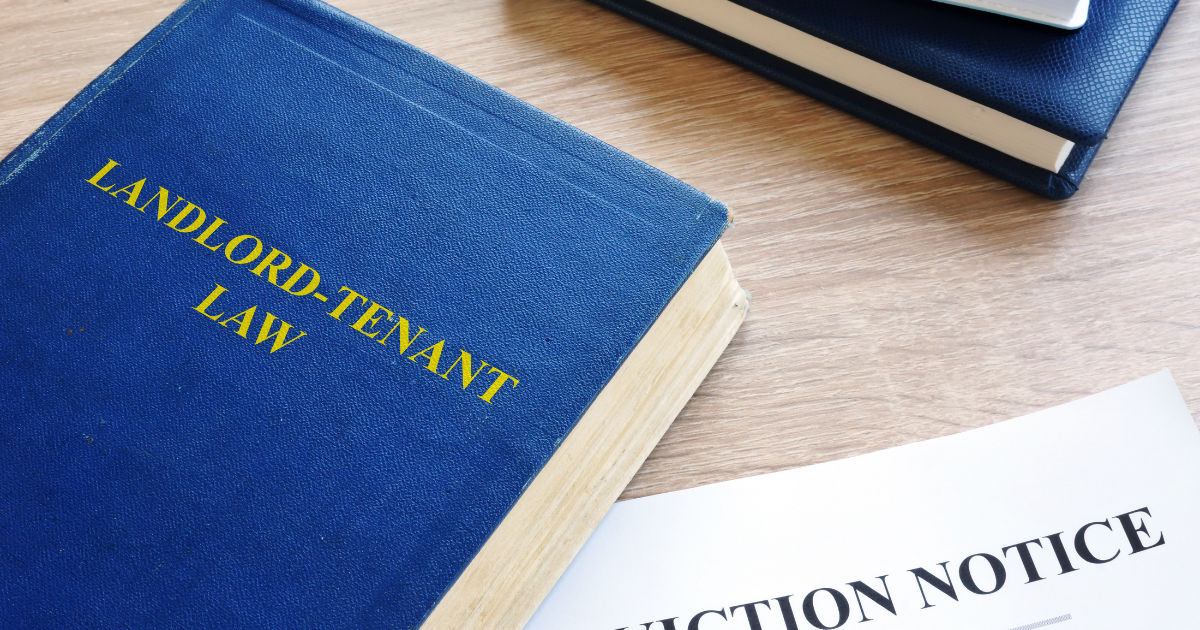Attempted Oral Modification Of Written Agreement Of Sale Disallowed
Whether the purchase involves residential or commercial real estate, the mindset should be the same, buyer beware. Because most real estate...
5 min read
Alan Nochumson : Feb 4, 2020 9:00:00 AM

In Wilson v. Parker, 2020 Pa. Super. LEXIS 42 (Jan. 24, 2020), the Pennsylvania Superior Court cautioned, however, that, even if an oral agreement to purchase real estate runs afoul of the doctrine of the statute of frauds, the attempted buyers can still recover monetary damages against the property owner under a claim for unjust enrichment.
In 2008, when Alison and David Wilson moved to Bedford County, they began leasing a trailer owned by Chad and Jessi Parker, the opinion said.
The Wilsons orally agreed to pay rent to the Parkers in the amount of $400 per month, the opinion said.
About a year later, the parties agreed that the Wilsons would not only purchase the trailer from the Parkers for $1,000, but also the land upon which the trailer was situated for $10,000.
Thereafter, the Wilsons immediately paid the $1,000 due to the Parkers for acquisition of the trailer and continued to pay rent to them in the amount of $100 for a few months until they paid them the agreed upon $10,000 for the purchase of the land, the opinion said
The Wilsons paid no additional rent to the Parkers after making the agreed-upon payment of $10,000 for the land.
Over the next seven years, the parties had many interactions regarding the formal transfer of the property, but no deed was ever executed or recorded.
During this period of time, the Wilsons made improvements to the property that amounted to $11,228.19, the opinion said.
When Chad Parker ultimately stated his intention not to sell the property to the Wilsons, the Wilsons filed a civil complaint against the Parkers in the Bedford County Court of Common Pleas for, among other things, specific performance and unjust enrichment.
After the bench trial took place, the trial court judge not only refused to compel the transfer of the property to the Wilsons based upon the doctrine of the statute of frauds, but he also denied their claim for unjust enrichment and ordered that they relinquish their possession of the land to the Parkers.
The Wilsons appealed the trial court’s ruling to the Superior Court.
Prior to the Superior Court handing down its opinion, the Wilsons did, indeed, relinquish their possession of the land to the Parkers.
On appeal, the Wilsons only challenged whether the trial court erred in denying their claim for unjust enrichment for the purchase price and cost of repairs and improvements after their oral contract to purchase the land was deemed unenforceable.
The Superior Court ultimately agreed with the Wilsons that the trial court judge misapplied the law of unjust enrichment.
The Superior Court first addressed the trial court judge’s belief that the lack of a legally binding contract between the Wilsons and the Parkers barred the Wilsons from recovering monetary damages against the Parkers for unjust enrichment under the circumstances.
The Superior Court emphatically stated that “the absence of an enforceable contract is not, as the trial court held and as Chad Parker claims, ‘fatal to the Wilsons’ claim for unjust enrichment,’” but rather reasoned that “the absence of an enforceable contract at law is the seed from which an unjust enrichment claim in equity sprouts” in that “the quasi-contract theory of … unjust enrichment, by definition, imply that no valid and enforceable written contract exists between the parties” and “critically … the doctrine of unjust enrichment is inapplicable when the relationship between parties is founded upon a written agreement or express contract.”
The Superior Court emphasized that “the Wilsons had every right to pursue that alternative theory once the trial court denied specific performance due to the statute of frauds.”
Citing to Meyer, Darragh, Buckler, Bebenek & Eck v. Law Firm of Malone Middleman, 179 A.3d 1093 (Pa. 2018), the Superior Court then discussed whether the Wilsons met their burden at trial in establishing the following elements for a claim of unjust enrichment: “benefits were conferred on defendant by plaintiff; appreciation of such benefits by defendant; and acceptance and retention of such benefits under such circumstances that it would be inequitable for defendant to retain the benefit without payment of value.”
In analyzing the situation, the Superior Court cautioned that, “in determining if the doctrine applies, the focus is not on the intention of the parties, but rather on whether the defendant has been unjustly enriched.”
The Superior Court in Wilson found that the payment of $10,000 made by the Wilsons to the Parkers clearly satisfied the first two elements for a claim of unjust enrichment, as articulated by the Pennsylvania Supreme Court in Meyer, because the payment was a benefit that the Wilsons conferred onto the Parkers and the Parkers realized that benefit when the Parkers accepted the payment.
As for the third element (whether the “acceptance and retention of such benefits under such circumstances that it would be inequitable for defendant to retain the benefit without payment of value”), the Superior Court noted that, when a court declines to enforce an oral contract for the sale of land under doctrine of the statue of frauds, that court will generally return the parties to the position they occupy prior to the barred real estate transaction.
The Superior Court then relied upon the Restatement (Second) of Contracts Section 375, which, according to the Superior Court, “makes clear, returning the funds to the Wilsons vindicates the statute of frauds by fully rescinding the unenforceable, oral contract to sale the land that the Parkers and Wilsons allegedly formed.”
Comment (a.) to Section 375, which is titled ‘Restitution generally available,’ provides that “parties to a contract that is unenforceable under the Statute of Frauds frequently act in reliance on it before discovering that it is unenforceable. A party may, for example … make improvements on land that is the subject of the contract. The rule stated in this section allows restitution in such cases.”
The Superior Court did not believe that the Wilsons should receive the entire amount of $10,000 back from the Parkers since they also resided on and had the exclusive use and possession of the land for seven years.
The Superior Court pointed out that “the restatement covers this exact scenario in Illustration #2 of Section 375: by providing that the would-be buyer recoups both her purchase price (minus the value of using the land—i.e., rent) and the cost of improvements made during her time in possession of the property.”
Since the Parkers rented the land to the Wilsons for a short period of time at the rate of $100 per month prior to their receipt of the payment of $10,000 from them, the Superior Court reduced the monetary damages related to the $10,000 payment by $9,000, an amount equal to the rent they would have paid for the seven years they used the land until they relinquished possession of the land after the trial court’s ruling.
The Superior Court held that the Wilsons’ claim for unjust enrichment based upon the improvements they made to the land is equally meritorious under the law.
The Superior court flatly rejected Chad Parker’s attempt to discount the $11,228.19 as having afforded him no benefit based upon his assertion that the trailer would need to be torn down.
In so doing, the Superior Court stated “that the roof and the deck were attached to the land—not the trailer—and there was no testimony that those improvements were to be demolished” and, “even if Chad Parker removes those constructions in the future, the Parkers still reaped and retained benefits from them for a time.”
The Superior Court’s ruling in Wilson merely confirms that, when an oral agreement to transfer real estate remains uncompleted and the doctrine of the statute of frauds bars specific performance, a court will generally restore the parties to the position they would have occupied had neither party performed any part of the unenforceable oral agreement.
Reprinted with permission from the February 4, 2020 edition of The Legal Intelligencer © 2020 ALM Media Properties, LLC. All rights reserved. Further duplication without permission is prohibited. For information, contact 877-257-3382, reprints@alm.com or visit www.almreprints.com.

Whether the purchase involves residential or commercial real estate, the mindset should be the same, buyer beware. Because most real estate...

While owning a home is the “American dream,” the process of purchasing one can become a nightmare. In a sympathetic response to the expense and...

Late last year, I wrote about a ruling recently handed down by Judge Nina W. Padilla of the Philadelphia Court of Common Pleas that allowed a...